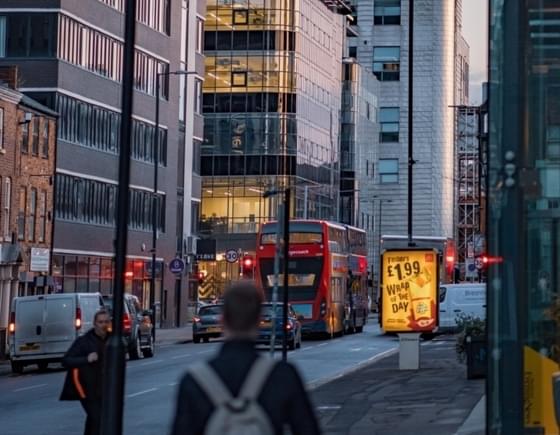The lack of simple, value for money tickets is often cited by non-bus users as a reason not to use public transport; whilst existing public transport users yearn for multi-operator and multimodal solutions to enable them to interchange seamlessly within and between modes. Yet delivering such ticketing solutions is a challenge that local authorities and operators continue to grapple with.
Fares and Ticketing
- What We Do
- Public Transport
- Fares and Ticketing

The simplification of fares and ticketing, and the implementation of lower fares across a transport network, are fundamental aspects at the heart of the National Bus Strategy. They are also key elements of making public transport networks more attractive and easier to understand and use.
Our specialist public transport team works collaboratively with operators and local authorities to design and implement ticketing solutions that deliver for passengers. We understand the needs of differing sectors of society for traditional ticketing approaches and the drive for new technology-led solutions to attract the next generation of public transport users.
Capabilities
- Fares and ticketing strategies
- Collection, analysis, and reporting of large datasets of ticket and revenue data
- Development of models to show the implications of changing fares, structures, or products
- Multi-operator ticketing scheme development, implementation, and administration
- Interoperability and integrated ticketing solutions
- Fare structure design.
Liverpool Zonal Fares Review
ITP was commissioned by Liverpool City Region Combined Authority to undertake a comprehensive scoping study for a zonal fares review. We assessed sales, survey, and historic data, contextualising with other open datasets, and identifying data gaps. Following a review of the data available, a number of possible zone restructuring approaches were developed, derived from local collaboration, analysis of practical considerations/constraints, and national and international best-practice.
Patronage and revenue data was then applied to a spreadsheet model to assess the implications of adopting five potential zonal systems. This enabled us to define the zonal boundaries; understand the indicative financial impact (on both the train operators and the residents of the region); and weigh up the positives and negatives of introducing each model. The model also allowed the flexibility to test different geographic options for zonal fare products, such as prioritising affordable travel for areas of greater deprivation or targeting mode-shift from car use to public transport.
Image source: Merseyrail.org
Cornwall Fares Pilot
Cornwall Council was awarded £23.5m from the Department for Transport (DfT) to deliver the country’s first Superbus network low Bus Fares Pilot (BFP) over four years. As the country emerges from the Covid-19 pandemic, the BFP aims to stimulate bus passenger growth by significantly reducing fares across the county, aiming to both regain previous travellers and attract new passengers.
After supporting the authority with the financial aspects of the successful bid to DfT, ITP was appointed to provide technical and administrative support in the design and implementation of the BFP. We worked closely with the authority and operators to support the introduction of interoperable ticketing (a precursor to the BFP) and conducted a review of the existing fares structure in the county. A model was developed to understand the potential costs of the BFP and assess the financial implications of applying varying levels of discount.
We have also been commissioned to assist in the preparation of a fares and ticketing strategy which will consolidate the commitment to ticketing integration within and between public transport modes across the county.
